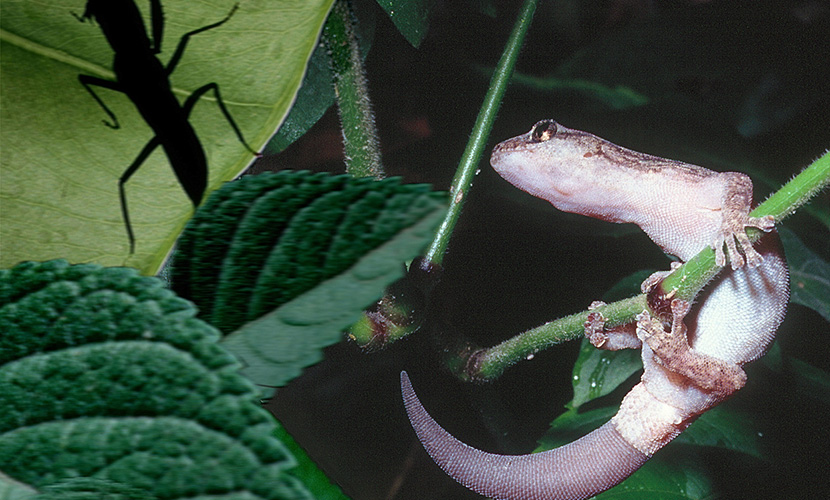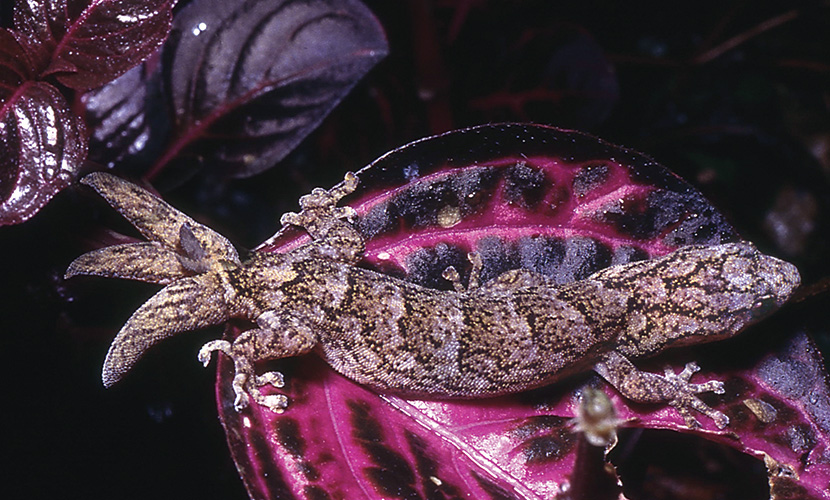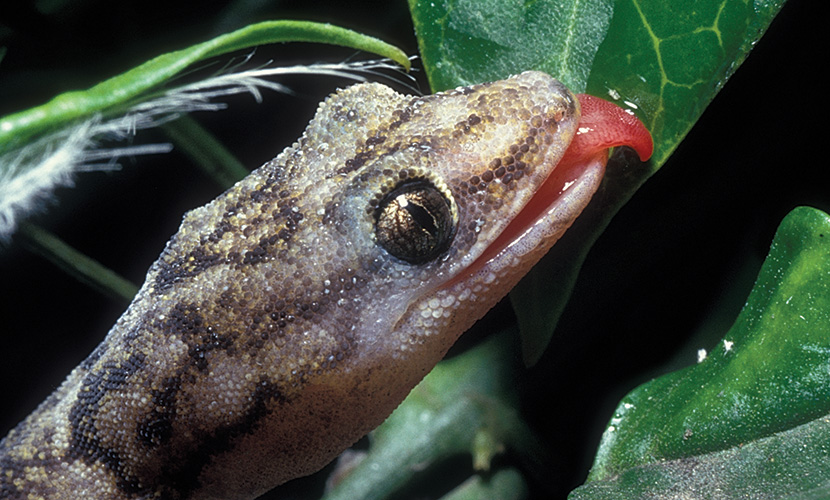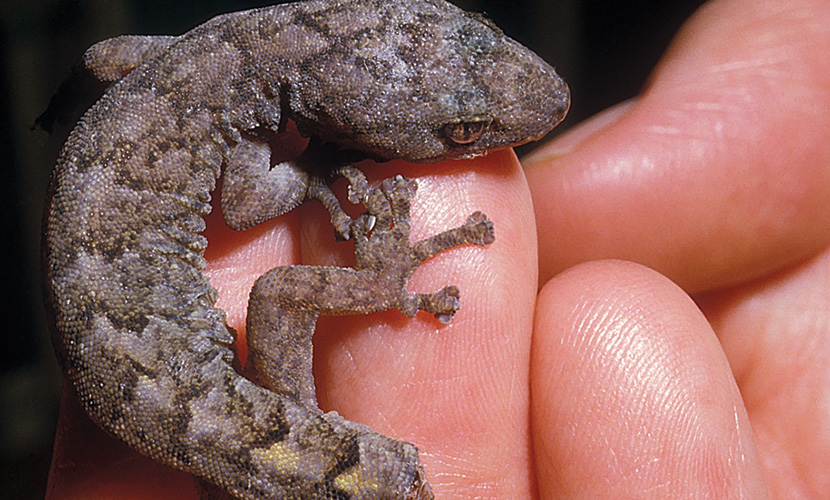Yes, the eyes have it
Checking out the gardens of North Melbourne at night can be fun, but of course a little patience is required.
It may take a few visits before you learn the favourite haunts of each of the creatures which come to light, so to speak, after dark.
You can expect anything from a bulging, well-fed brushy or ringtail scuttling acrobatically across the top of your fence down to a tiny shiny brown earwig corralling her eggs under any one of the rocks edging your garden beds.
Spiders, snails, slugs, moths, even owls or fruit bats might be snared by your torch beam.
The one thing they have in common is they are all more comfortable than you or me in the hours without sunlight.
The ability to see in the dark is of course a great bonus if you are a nocturnal animal. Geckoes, such as the one in the pic (Melbourne’s only species, the Marbled Gecko or Christinus marmoratus, no doubt having been misled by the false advertising in some dodgy glossy travel brochure) have a number of attributes which aid their night-time hunting habits including the ability to move extremely quietly and the impressive skill of climbing at seemingly impossible angles.
Their feet actually perform a constant self-cleaning process and suction pads on their delicate toes help aid their circus antics, although recent research suggests this incredible adhesion may be due more to electro interaction (no, I don’t know what it means either) and their fondness for licking their own eyes, as they have no eyelids, makes them even more fun to watch.
By the way, if you were wondering, their colour vision is about 350 times more effective than ours; handy when the sun goes down.
Our Melbourne Gecko also has the ability of our many skink species (as well as many spiders, stick insects and starfish) to jettison its tail as a decoy when attacked by any of the other, larger night-owls.
This feature is known as “autotomy” – rather like autonomy but with a blocked nose. Hopefully for the gecko this inconvenience occurs early rather than later in the summer as growing another tail in which to store the winter stockpile of fat takes some time.
Occasionally two or even three tails replace the missing one, giving a slightly stegosaurian look to the otherwise normal gentle homely shape.
You may have these gentle creatures in your garden and not be aware of it. Their name comes from Malaysia for “barking like a dog” and as the only lizards which vocalise, you may in fact hear a tiny barking sound if you’re sitting outside on a summer’s evening having a quiet sip.
If so, it’s either the neighbour’s chihuahua or you have geckoes.
Mostly carnivores, feeding mainly on moths, mosquitoes and the occasional mantis (when in need of greens?), female geckos lay only two eggs.
Like many similar species they often shed an old outgrown skin (which in the gecko’s case they actually eat, the skin being impregnated with a healthy anti-bacterial substance) and typical of reptiles generally, they are ectothermic (cold-blooded).
The largest overseas species grow up to an impressive 60cm in length, the smallest, a miniscule 1.5cm. Melbourne’s marbled specimen usually grows to about 12cm, just the right size to sit nicely on your hand.
If you promise not to tell the purists, I’ll admit to occasionally feeding honey to these timid creatures.
As soon as my torch beam hits the shrubbery the half dozen or so residents start to pack up and go home but if I drop a little honey from my syringe in front of one, bingo, I have a mesmerised gecko.
Going into a trance, they act like flies which have inbuilt mechanisms which allow them to either walk, or eat, but not both (not unlike certain American presidents I’m told).
They appear totally hypnotised as they swoon over this golden ooze. The advantage, of course, is we then have time to observe these soft cool velvety creatures in detail. What a pleasure they are to have in our garden.
Take the torch out tonight, but tread quietly, and you might get lucky.
If you would like to see more of my work, click here.

Jo Ryan unveils Ordered Chaos at Blender Studios






 Download the Latest Edition
Download the Latest Edition